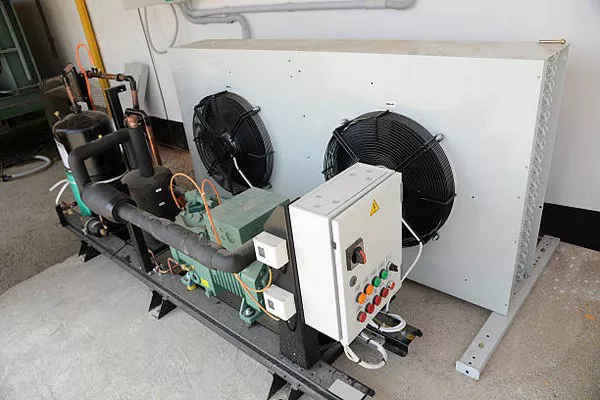Generators are essential devices that provide backup power during outages and emergencies. They come in handy during storms, hurricanes, and other natural disasters, when electricity supply can be disrupted. However, one common question that arises is whether it’s safe to use a generator in the rain. In this article, we will explore the safety considerations and precautions for using generators in wet conditions to help you make informed decisions when the need arises.
Generator Basics
Before delving into the specifics of using a generator in the rain, let’s start with some basics. Generators work by converting mechanical energy into electrical energy. Most generators are fueled by gasoline, diesel, natural gas, or propane. The engine in the generator powers an alternator, which generates electricity. This electricity is then delivered to your appliances or connected to your home’s electrical panel through a transfer switch during power outages.
Generators come in various sizes, from portable ones that can power a few essential appliances to larger, standby generators that can supply electricity to an entire home. They play a crucial role in maintaining essential functions when the grid fails.
Using a Generator Safely
Using a generator safely is paramount, regardless of weather conditions. There are several safety guidelines to follow when operating a generator:
Location: Place the generator outdoors in a well-ventilated area. Keep it away from doors, windows, and air intake vents to prevent carbon monoxide from entering your home.
Grounding: Ensure that the generator is properly grounded to reduce the risk of electric shock. Follow the manufacturer’s instructions for grounding.
Ventilation: Generators emit exhaust gases, so ensure there is adequate ventilation. Running a generator in an enclosed space, even during rain, can be extremely dangerous due to the accumulation of toxic gases.
Fuel Storage: Store fuel in approved containers in a safe location away from the generator, and follow all safety recommendations for fuel handling.
Extension Cords: Use extension cords specifically designed for outdoor use and connect them to the generator’s outlets.
Avoid Overloading: Never overload the generator by plugging in too many appliances. Check the generator’s capacity and prioritize essential items.
Maintenance: Regularly maintain and service your generator to keep it in good working condition. This is essential for its overall performance and safety.
Generators and Rain: The Safety Concerns
Now, let’s address the main question: can you use a generator in the rain? The short answer is that it is not recommended to operate a generator in the rain. However, if you find yourself in a situation where you have no other option, there are some precautions you can take.
Cover the Generator: If you must run a generator in the rain, cover it with a canopy or a specially designed generator tent. This will protect it from water and reduce the risk of electrical hazards.
Elevation: Place the generator on an elevated surface to prevent water from pooling around it. Ensure the surface is level and stable.
Electrical Safety: Keep all electrical connections, outlets, and extension cords dry by using appropriate covers. Invest in weatherproof outlet boxes to protect connections.
GFCI Protection: If your generator does not have built-in Ground Fault Circuit Interrupter (GFCI) protection, use an external GFCI device to safeguard against electrical shocks.
Dry Hands and Feet: When working with the generator in wet conditions, always keep your hands and feet dry to reduce the risk of electrical shock.
Regular Inspections: Continuously monitor the generator while it’s running in the rain. If you notice any issues or damage, turn it off immediately and consult a professional for repairs.
It’s important to note that despite taking precautions, using a generator in the rain is still associated with a higher level of risk. Water and electricity are a dangerous combination, and safety should always be the top priority.
Generator Tents and Canopies
If you live in an area prone to frequent power outages and adverse weather conditions, investing in a generator tent or canopy can be a practical solution. These specially designed covers are made from waterproof materials and provide a protective barrier for your generator. They offer the following benefits:
Waterproof Protection: Generator tents and canopies are designed to shield your generator from rain, snow, and other forms of precipitation. They also offer protection against wind-driven debris.
Improved Ventilation: Many generator covers are designed with ventilation in mind, ensuring that the generator receives enough airflow to prevent overheating and exhaust gas buildup.
Reduced Noise: Some covers come with noise-reducing features, making your generator quieter while it operates.
Enhanced Safety: Generator tents and canopies provide an added layer of safety, reducing the risk of electrical hazards associated with rain.
Conclusion
In summary, while it is not advisable to use a generator in the rain, there are precautions you can take if you find yourself in a situation where it’s unavoidable. Covering the generator, elevating it, ensuring electrical safety, and keeping a close eye on its operation are key steps to minimize risks. However, these precautions should not be seen as a substitute for avoiding the use of generators in wet conditions whenever possible.
Your safety and the safety of those around you should always be a top priority. If you have concerns about using a generator in adverse weather, it’s best to consult with a qualified electrician or generator technician who can provide guidance on safe operation and offer solutions tailored to your specific needs.

